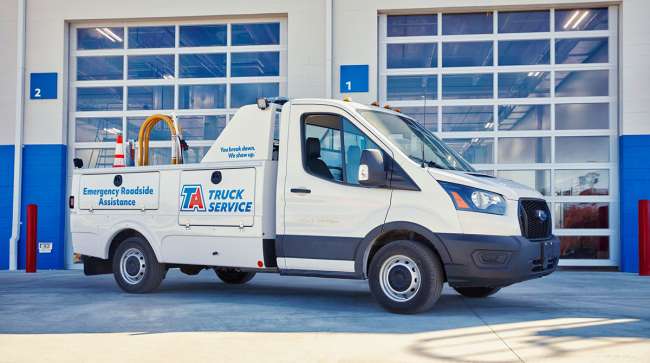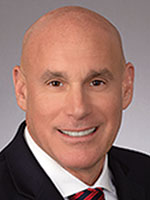Senior Reporter
TravelCenters of America Prospers in Q3

[Stay on top of transportation news: Get TTNews in your inbox.]
TravelCenters of America Inc. reported net income and revenue rose in the third quarter as it delivered slightly more diesel and less gasoline, and achieved a 24.9% increase in fuel gross margin.
For the quarter ended Sept. 30, the company posted net income of $36.9 million, or $2.49 per share, compared with $22.2 million, $1.52, a year earlier. Revenue rose to $2.8 billion compared with $1.9 billion in the 2021 period.
“I believe TA’s strong performance during what remains a challenging and uncertain environment provides further evidence that solid results like these are sustainable and repeatable moving forward,” CEO Jonathan Pertchik said during the company’s earnings call. “We are just beginning to hit our stride with growth and innovation.”
That said, Pertchik expects persistent volatility to remain at least through the end of 2022 and perhaps well into 2023.
Of the company’s total revenue, fuel sales accounted for $2.2 billion compared with $1.4 billion a year earlier. It sold 518,778 gallons of diesel, 1% more compared with 513,827 a year earlier. Gallons of gasoline sold fell 11.3% to 63,861 from 72,021.
Total fuel volume was down 0.5%. The fuel gross margin per gallon rose 25.4% to 22.7 cents compared with 18.1 cents a year earlier.
He said the company relies on artificial intelligence for street diesel pricing, “which attacks the highest part of customer segmentation,” and then relies on the private label small-fleet program, which is really “getting some momentum, with the rate of growth of that month-over-month for the past couple of months has been 100%.”

Pertchik
TA has yet to report fuel volumes through the small-fleet program.
“I expect AI and machine learning to broaden into other parts of our business on the fuel side initially and probably other places eventually,” Pertchik added. “Our beta testing done over a few months was very, very significant, with very meaningful incremental EBITDA [earnings before interest, taxes, depreciation and amortization], very measurable,” he said.
Pertchik said TA also was looking at buying more fuel from the Colonial Pipeline, something it has done already in a very limited way. “Our direct competitors do that. Most of the industry buys from the pipeline in addition to the way we have sort of described how we purchase fuel. It is something we are in the early innings of testing. It could be very significant for us. Others do very well buying from the pipeline.”
All segments of its nonfuel business also saw increased revenue. Truck service revenue jumped 13.6% to $227.4 million, store and retail services increased 3.1% to $204 million, restaurant sales increased 9.6% to $87.4 million, and diesel exhaust fluid sales soared 38.7% to $46 million.
Pertchik said DEF has become an important part of TA’s business and the company intends to have dispensers available at each diesel fuel island by the end of this year.
In all, nonfuel revenue grew 10.5% to $564.9 million compared with a year earlier.
Truck service’s “robust revenue” stemmed largely from its mobile maintenance business that sends technicians in Ford F-550 trucks, or a “shop on wheels,” he said, to the yards of its large fleet customers.
TA intends to grow truck service in corridors where it does not have a travel center, but where there is customer demand, he said. “Frankly, it’s both a capital and operationally expense-light way of growing that business. We are very focused on that.”
For the most part, the service is not provided exclusively by contract. In many cases, those vehicles will exist most of the time in the customer’s yard doing regular maintenance and, as needed, bigger services.
Want more news? Listen to today's daily briefing above or go here for more info
“It is a very sticky — in a positive way — business for our brand because once the vehicle is there and creating that convenience, boy is it needed and the more it is there the more it is needed,” Pertchik said.
As for alternative fuels, the company expanded its TA brand’s biodiesel blending capabilities and installed some electric vehicle charging stations. TA is also exploring ultra-high-power truck charging and hydrogen fuel dispensing in parallel with traditional fossil fuels.
TravelCenters of America Inc. is the nation’s largest publicly traded full-service travel center network. Founded in 1972, it has grown to 19,000 team members at 275 locations in 44 states, principally under the TA, Petro Stopping Centers and TA Express brands. Offerings include diesel and gasoline fuel, truck maintenance and repair, full-service and quick-service restaurants, travel stores, car and truck parking and other services dedicated to providing great experiences for its guests.


